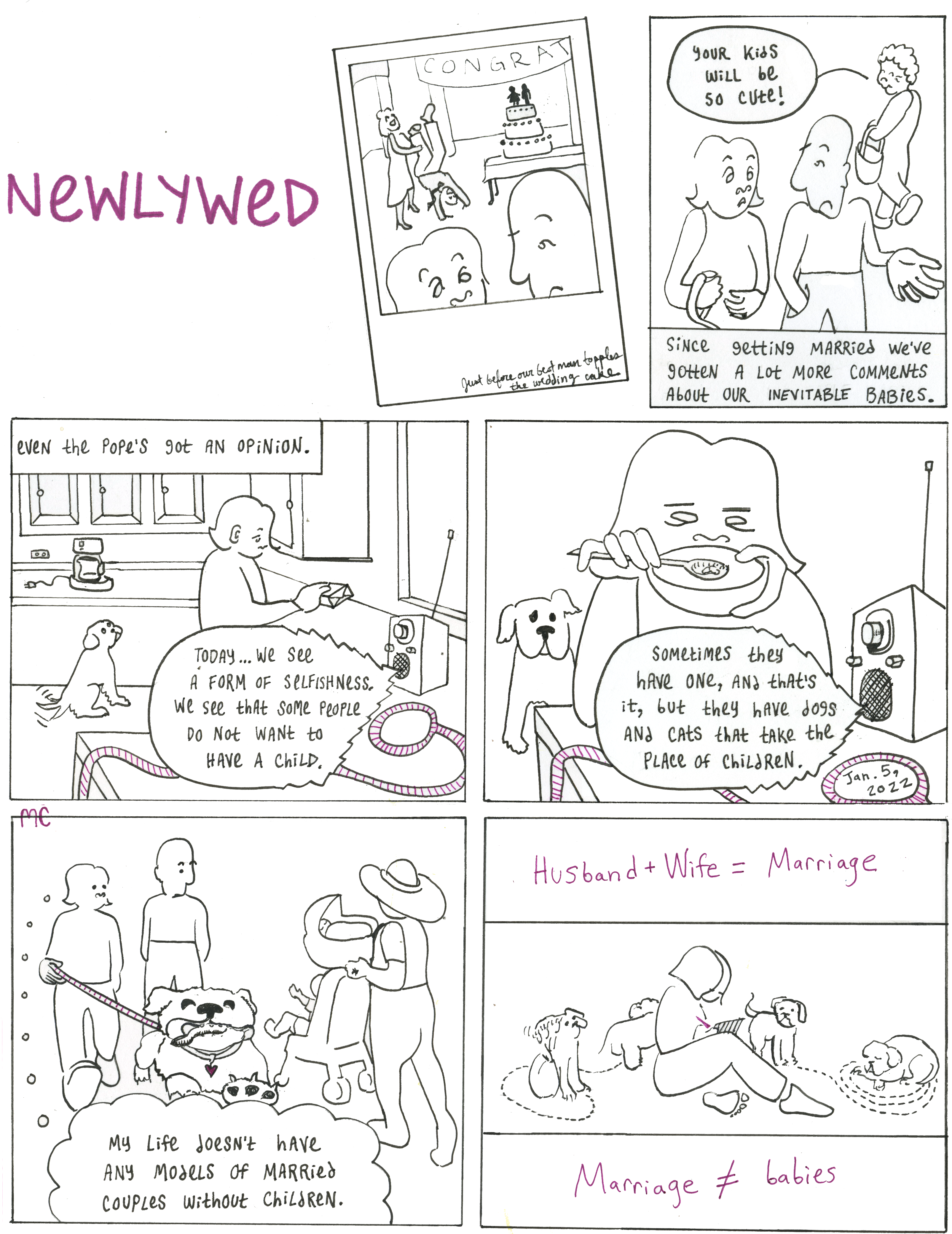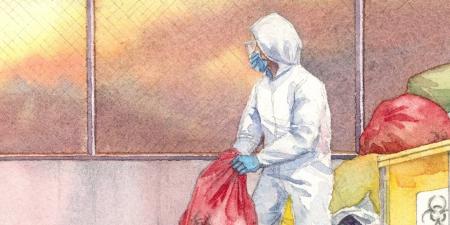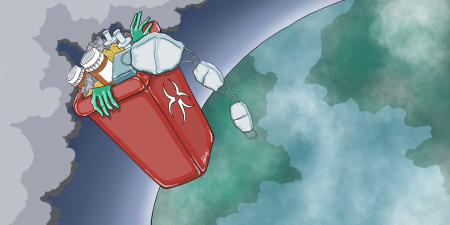Abstract
In Newlywed, a woman is stressed by unsolicited opinions and frequent insinuations that marriage inevitably leads to babies. She laments, “Even the pope’s got an opinion!,” in response to his suggestion that selfishness motivates couples who choose not to have children.
Figure. Newlywed

Media
Ink on paper, 9" x 11".
In January 2022, Pope Francis suggested that selfishness motivates couples who choose not to have children.1 From this point of view, a couple who does not have children supposedly gives up opportunities to instill good values in the next generation. Calling childless persons’ motivations “selfish” perhaps can be charitably interpreted as recognition of the hard work that parenting demands. But reasons to remain childless should likely also be recognized as dependent upon many legitimate possible priorities. A sense of selflessness, for example, not selfishness, can motivate decisions of childless couples who wish to reduce their carbon footprint and apply their energies to existing lives. Furthermore, why must a decision not to have children be tied to any moral imperative at all?
This comic originally had a different ending. To celebrate childless couples, I wanted the woman in the comic to have a thought bubble filled with intentionally childless, historically significant married couples. This didn’t work out. Neither research nor polling helped turn up more than a few examples, all of whom happen to have been artists: Frida Kahlo and Diego Rivera; Georgia O’Keefe and Alfred Stieglitz; and Virginia and Leonard Woolf. These disruptors of norms, however, did not uniformly choose to be childless: Kahlo was injured,2 O’Keefe and Stieglitz seemed to disagree,3 and Woolf, rightly or wrongly, deemed his wife too unstable to have children.4 The scrapping of this ending due to there being few historical models of significant childless marriages might suggest that, when diverse pairs of persons feel pressure to bear and raise children, this pressure itself and its sources warrant critical appraisal of the norms they protect. Questioning a norm’s legitimacy is key to personal and public inclusion.
References
-
Sherwood H. Choosing pets over babies is “selfish and diminishes us,” says Pope. Guardian. January 5, 2022. Accessed April 18, 2022. https://www.theguardian.com/world/2022/jan/05/pope-couples-choose-pets-children-selfish
-
Svoboda E. How a devastating bus accident changed Frida Kahlo’s life and inspired her art. History. March 1, 2022. Updated March 9, 2022. Accessed April 18, 2022. https://www.history.com/news/frida-kahlo-bus-accident-art
-
Stamberg S. Stieglitz and O’Keeffe: their love and life in letters. NPR. July 21, 2011. Accessed April 18, 2022. https://www.npr.org/2011/07/21/138467808/stieglitz-and-okeeffe-their-love-and-life-in-letters
-
Sittenfeld C. Yes, Virginia. Review of Virginia Woolf: An Inner Life. New York Times. November 20, 2005. Accessed April 18, 2022. https://www.nytimes.com/2005/11/20/books/review/yes-virginia.html#:~:text=The%20couple%20never%20had%20children,and%20she%20sometimes%20heard%20voices



